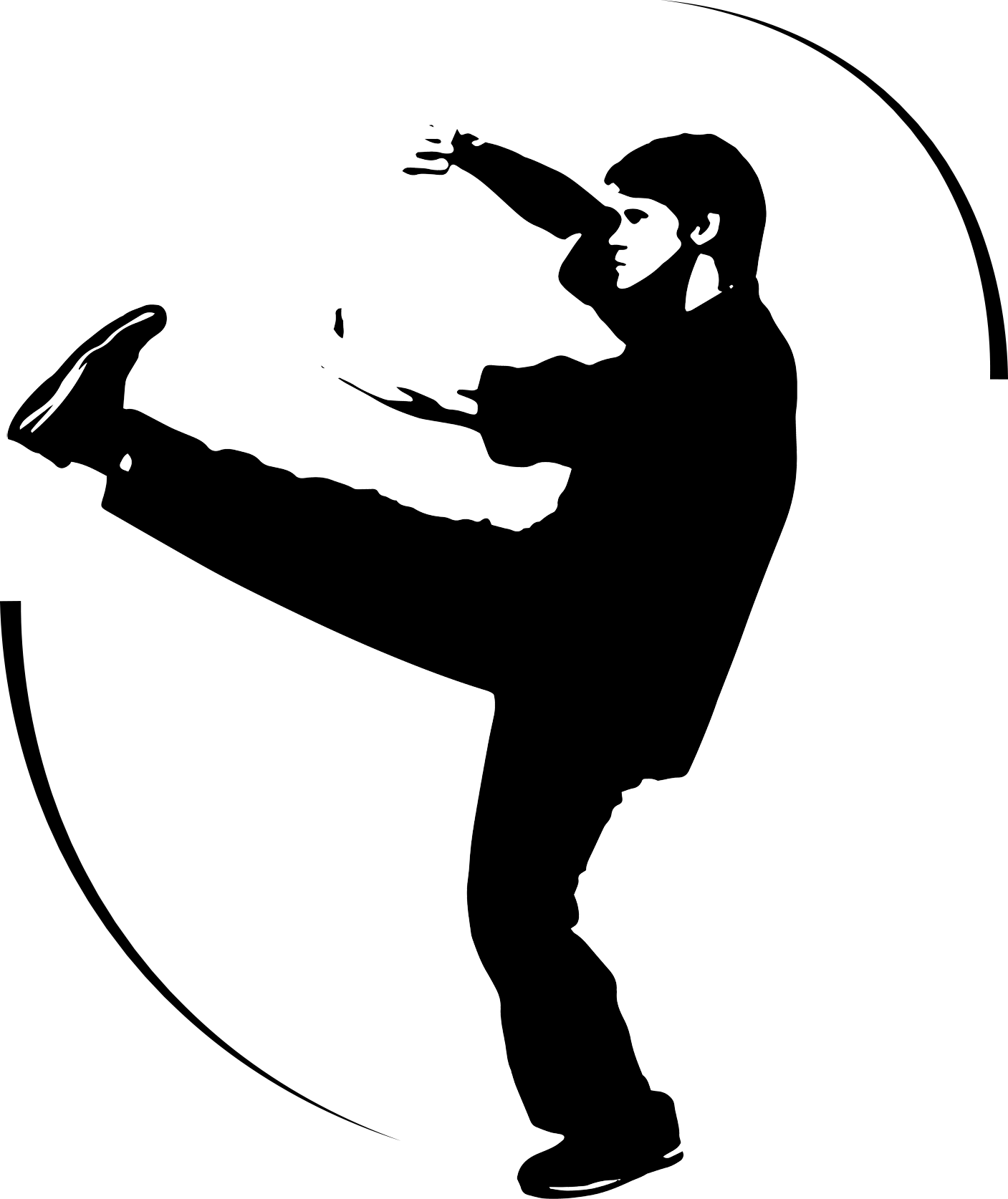
Continuing to train in Kung-Fu when separated from one’s school is a difficult thing. Though doing Kung-Fu requires practicing at home and often alone, the martial community at the school provides much of the motivation to do so. Deprived of this resource, the student must arrive at new motivating factors if they are to continue.
I remember when I was in the military, many years ago, I was often assigned to posts where there were no Kung-Fu schools. There were other martial artists. We would meet up and spar occasionally. But so far as an encouraging Kung-Fu family or an instructor to help develop my technique, I was alone.
This was a time long before the internet. All I had was the training I had received. I would often practice outdoors; making myself follow a routine. There were times it seemed futile. One day, completely unforeseen by me, this changed.
I was in the gym doing my physical fitness regimen. In the military, one must maintain a certain level of fitness and I devoted several days a week to it. In addition to this, I would sometimes do Kung-Fu.
That day, I had completed my fitness training and began my Kung-Fu workout. I was doing Chan Si Jing in a corner of the gym and suddenly the contrast of what I was doing, compared to the soldiers around me, came into sharp relief. I was utterly different than they were; not better, but different. I had trained in Kung-Fu since I was a child; became disciplined through it and my thought process had been shaped by its philosophies. I realized at that moment that my Kung-Fu was a defining aspect of who I was. If I were to let frustrations convince me to stop training, I would not be simply losing a skill; I would be losing part of myself.
I began practicing with a new focus. I decided that if I were not able to learn more, I would use every bit of understanding I had about the technique I was doing to evaluate and improve it. I spent time focused on doing the Kung; the special exercises of Kung-Fu that change the nature of one’s body. If I could not learn more, I would perfect that which I possessed.
I recalled reading Bruce Lee’s quote, “I fear not the man who has practiced 10,000 kicks once, but I fear the man who has practiced one kick 10,000 times.” It was inspirational. Because of my being alone, I decided to strive to become that man.
In the end, the realization that Kung-Fu was a part of my identity changed my solitary practice. It was no longer a chore; it was an expression of who I was. Eventually, this led me to approach other areas of my life: tasks, employment or projects, like I approached my Kung-Fu. Unexpectedly, I have found that people sensed the difference in our interaction from others in their daily lives. I became the soldier who was a Kung-Fu master, (I definitely was not in those days), the manager who was a Kung-Fu master, or even today, the business owner who is a Kung-Fu master. I did not foresee any of this, but it is a reality nonetheless. I find myself representing a tradition, a history, a philosophy and an art form that is centuries old and garners respect that I myself do not deserve. But it is who I am now.
Many years have passed since those days of training alone. I am, at this place, so thankful that I made the decision to continue my training in the face of isolation. Those of you who read this, who are separated from your Kung-Fu family, I encourage you to both continue to train and, using today’s amazing communications platforms, reconnect with your Kung-Fu family. If you are from Authentic Kung-Fu, we are always happy to hear from you, give advice and, if possible, come and train with you.
Being a Kung-Fu practitioner alone is not an easy time. However, it can be a time of unique development and insight. It was certainly that for me and I hope it can be that for you, also.

Sofia,
Well said,…your words are encouragement to those of us that have trained with you in the past. Though we may be without our Kung Fu brothers and sisters we are not without our Kung Fu.
With love and respect,
Al
This was a fantastic read.
This, of course, hit me hard. I train quite a bit alone these days, unless I’m teaching. I appreciate your words & find comfort in that I am not alone in this emotional connection with the art & my kung fu family. Thank you Sifu